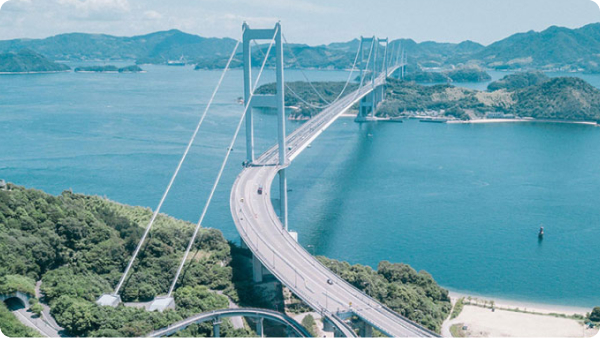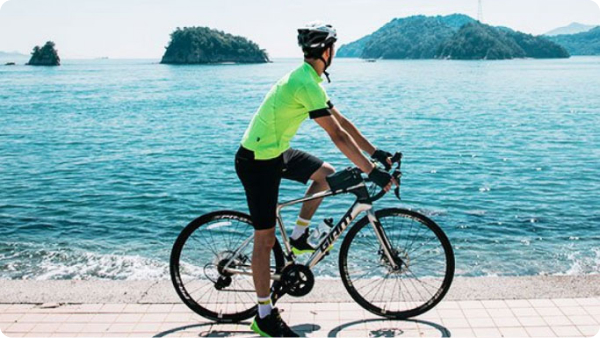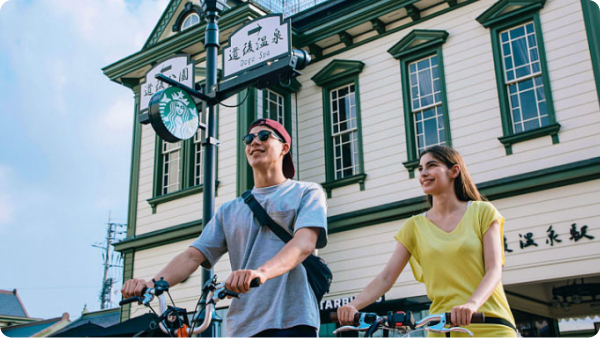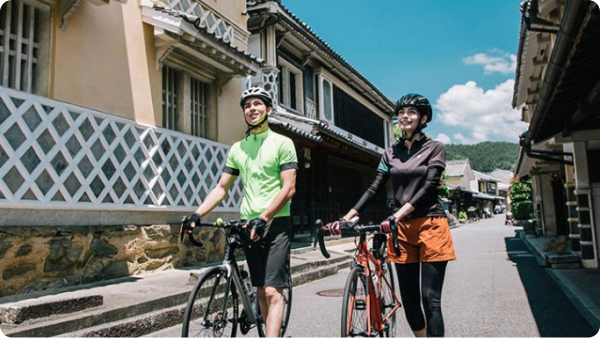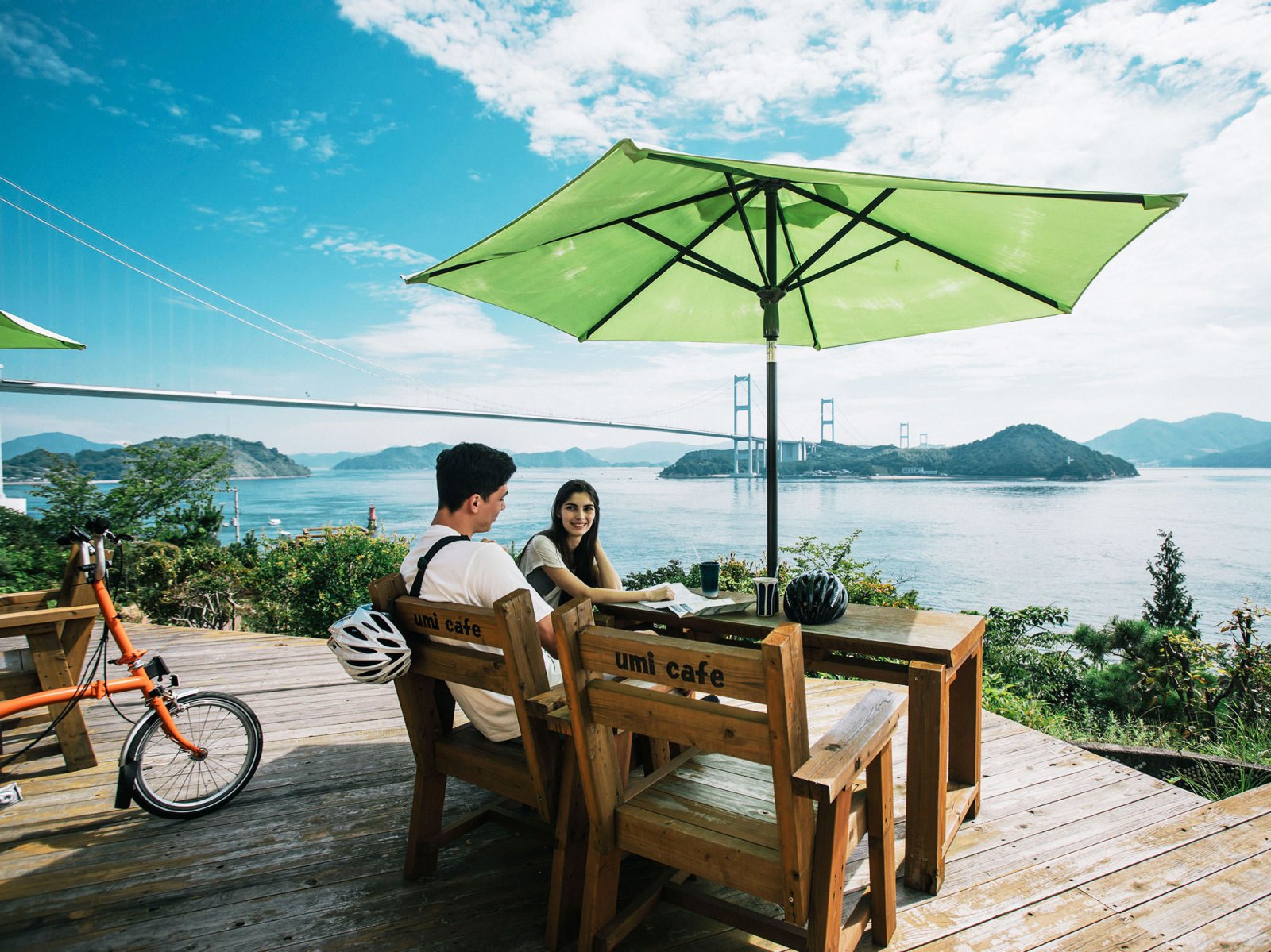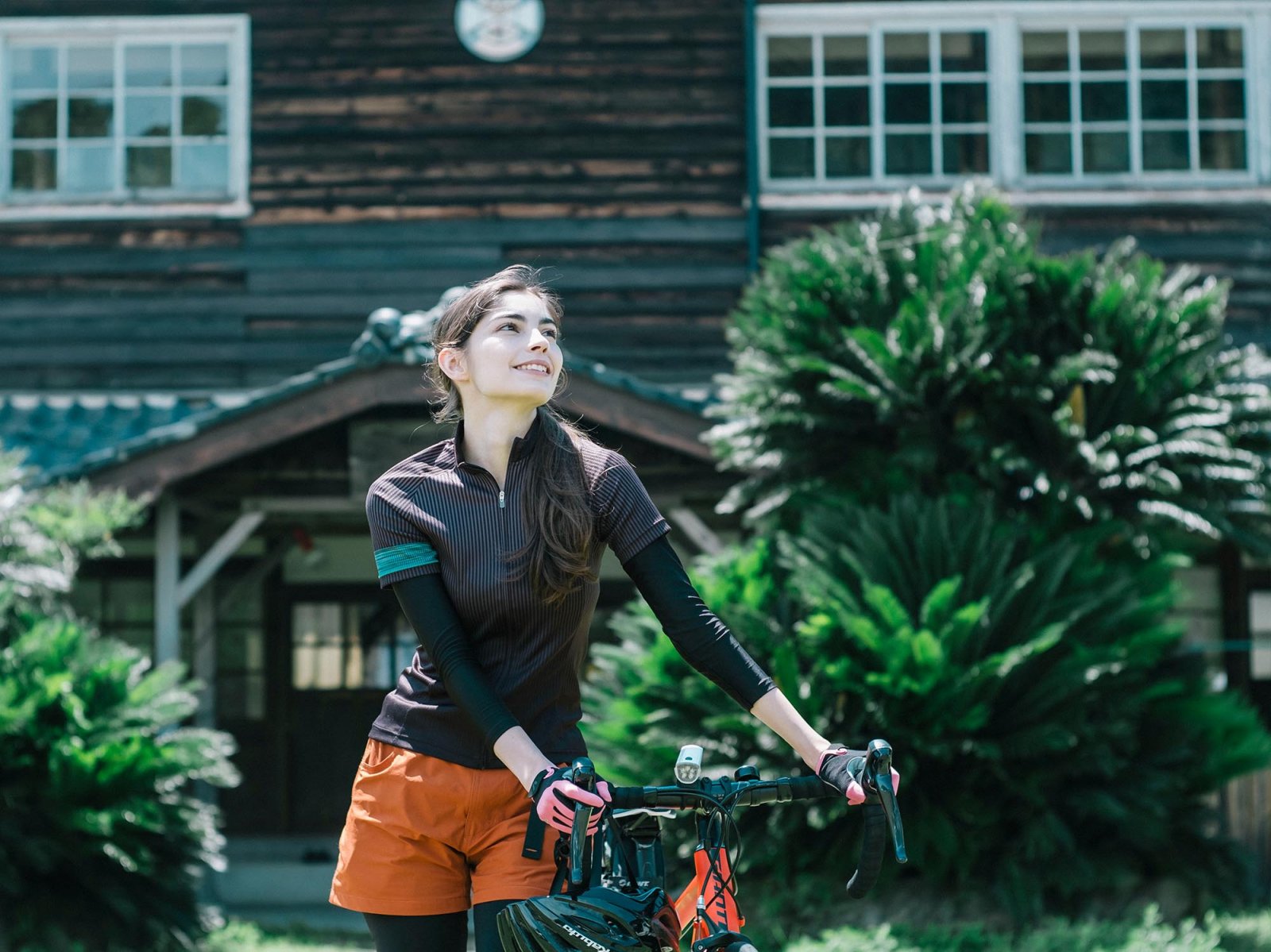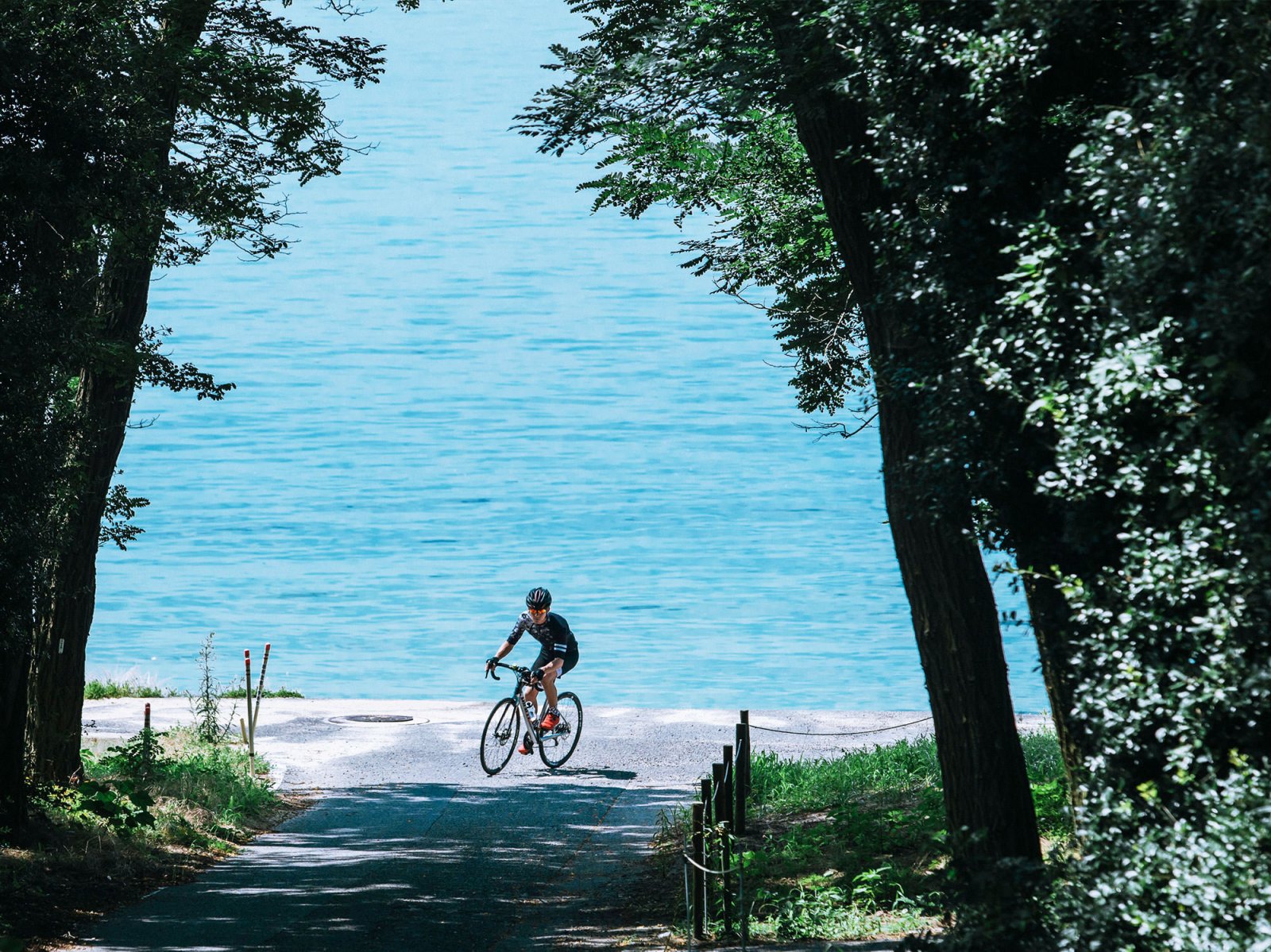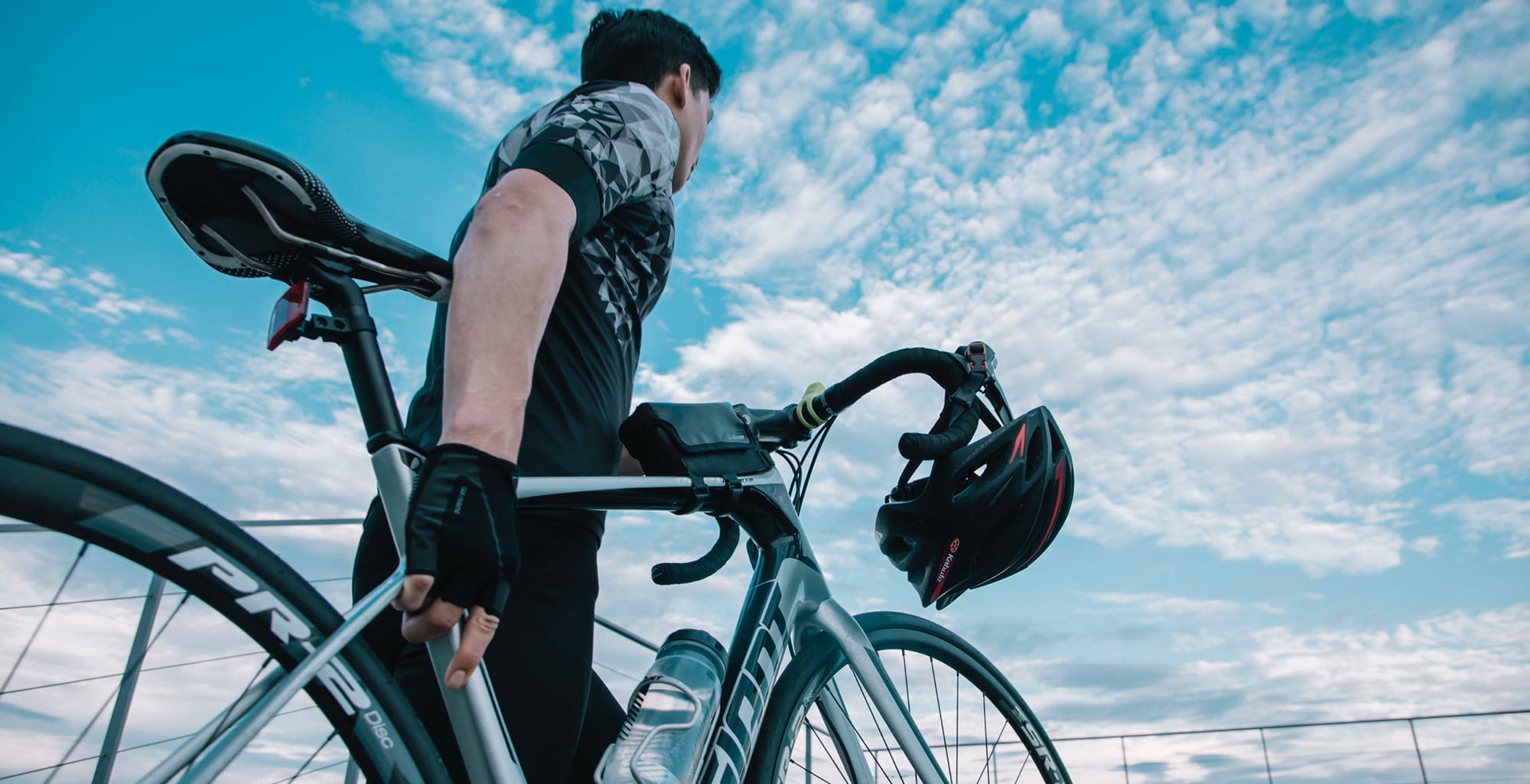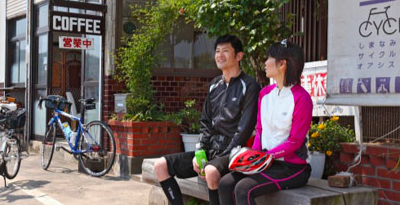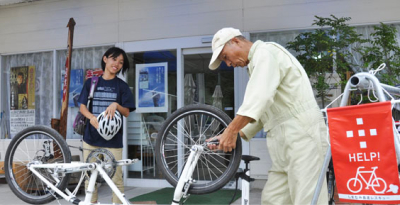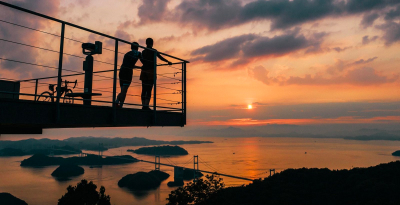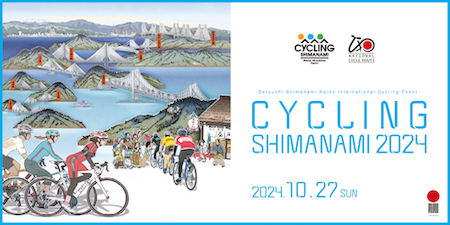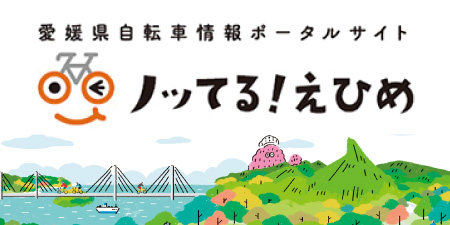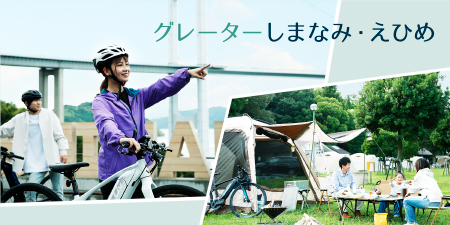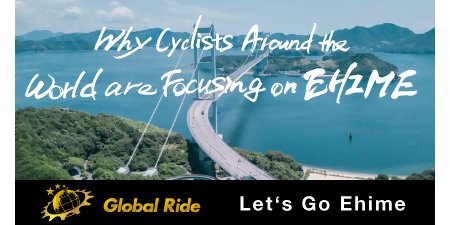About Ehime
CYCLING EHIME
Ehime Prefecture has a rich variety of cycling roads, including the Shimanami Kaido,
a mecca for cyclists, where you can experience a sense of speed
as if you were riding on the sea.
This website introduces some of the best cycling courses in Ehime Prefecture,
where you can enjoy both cycling and sightseeing, in the hope that you will enjoy renting
a bicycle for sightseeing or for your first bicycle trip.
We hope that you will enjoy cycling and the scenery,
flavors, and experiences that Ehime Prefecture has to offer.
CYCLING EHIME will continue to provide course information and other useful information.
Area & History
The name of Ehime prefecture originates with the name of a goddess who appears in the Kojiki myths, the oldest extant text in Japan, written 1,300 years ago. Located in the north west of Shikoku in Japan, Ehime is sandwiched between the abundant nature of sea and mountain, surrounded by the over 200 beautiful islands of the Seto Inland Sea on one side, and the mountainous area of Shikoku featuring Mount Ishizuchi, the tallest peak in western Japan at 1,982 meters, towards the south on the border with the neighboring Kochi prefecture. Ehime is warm throughout the year with lower rainfall, fewer typhoons, and less snow accumulation than other parts of Japan, making it the ideal mild climate for cycling. In Matsuyama, the cultural center of Ehime and the largest city in Shikoku, one can see how the city has long prospered from the availability of the bounty of both sea and mountain from the many historically and culturally important buildings that survive there, such as Matsuyama Castle and the original main building of the Dogo Onsen.
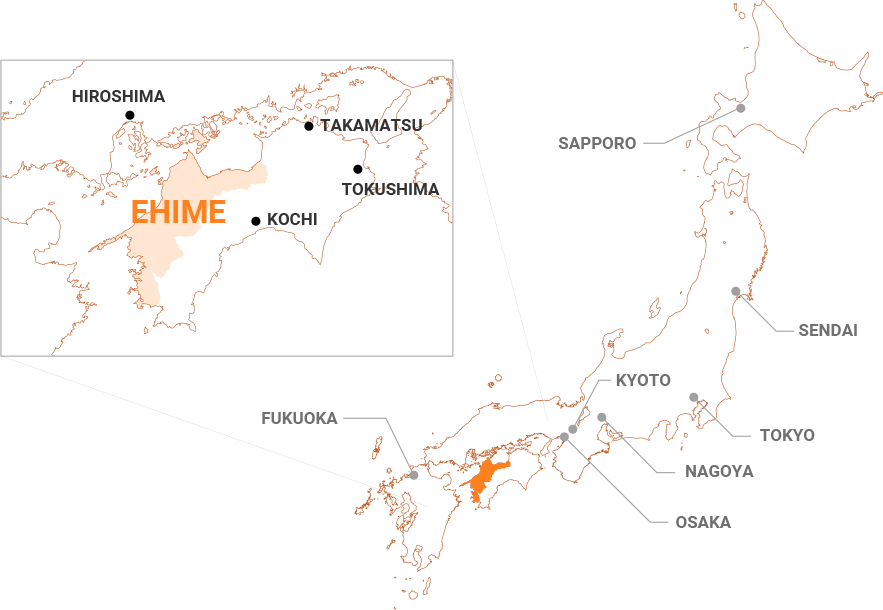
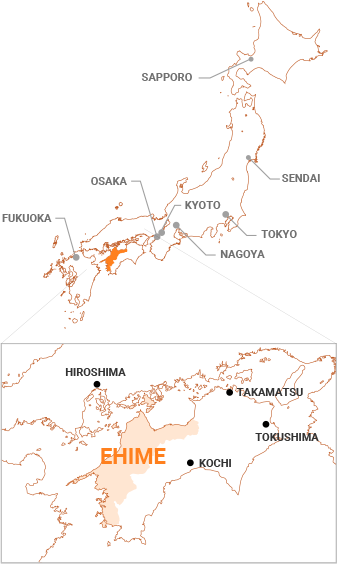
Attraction
One of the most popular spots is Dogo Onsen. It is an active public bathhouse and is designated as a national important cultural property. Sightseeing spots that bring visitors into contact with the world of Japanese literature are also popular, including a retro streetcar called the “Bocchan Train” named after Soseki Natsume, and a memorial museum dedicated to Shiki Masaoka. Visitors can enjoy the luxury of being a “castle owner” at Matsuyama Castle and Uwajima Castle, both of which have 12 existing castle towers, Imabari Castle, a coastal plain castle, and Ozu Castle, the first castle in Japan where visitors can stay in the castle tower, as well as traditional entertainment and cuisine. Shimonada Station, which has become famous for its proximity to the sea, and Aoshima, known as Cat Island, are also popular, especially among young people. And at Matsuyama Airport, the gateway to the sky, you can enjoy the special experience of having mandarin orange juice coming out of the faucet. In addition to mandarin oranges, Matsuyama Airport is also characterized by the abundance of other citrus fruits such as iyokan oranges. Also, the famous “tai-meshi,” or “sea bream rice,” which is so famous in Ehime, is served in two different ways in Matsuyama and Uwajima. Other local delicacies such as jako-ten (fish cake), Imabari yakitori (grilled chicken), and nabeyaki udon (hot pot noodle) are also available.
Why Ehime is attracting attention for cycling?
Ehime Prefecture is home to a treasure trove of cycling courses that satisfy a wide range of cyclists, from beginners to advanced cyclists, including the world-famous Shimanami Kaido cycling road that connects the islands of the Seto Inland Sea. Ehime Prefecture is making efforts to promote the use of bicycles as a “cycling paradise,” and we would like to introduce some of its unique initiatives.
-
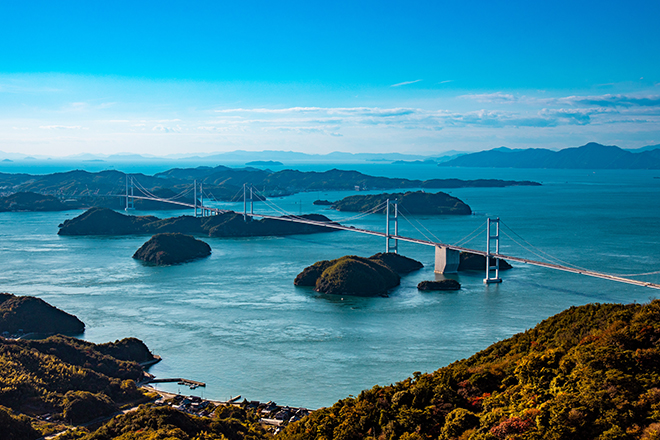 01
01The Shimanami Kaido is like a sacred route for cyclists connecting Ehime and Hiroshima prefectures.
The Shimanami Kaido is Japan’s number one cycling highway visited by countless cyclists from all throughout Japan and the world.
This highway connects the six islands of the Seto Inland Sea via seven massive bridges, and the shortest route to the end is roughly 70 kilometers. However, because there are so many interesting sights to see along the way, the route transform and exceed 100 kilometers if you ride along the shorelines of each of the islands. -
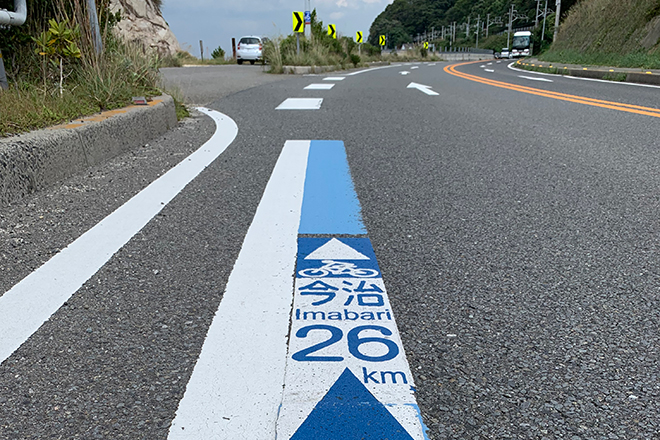 02
02Features the dedicated cycling path Blue Line that serves as a guidepost for cyclists.
The Blue Line is a blue colored guide line that runs on the left side of roads for automotive traffic. In addition to providing an easy to understand route guide for cyclists, it also makes for a safer and more comfortable ride by letting car drivers know there is a cycling route there. -
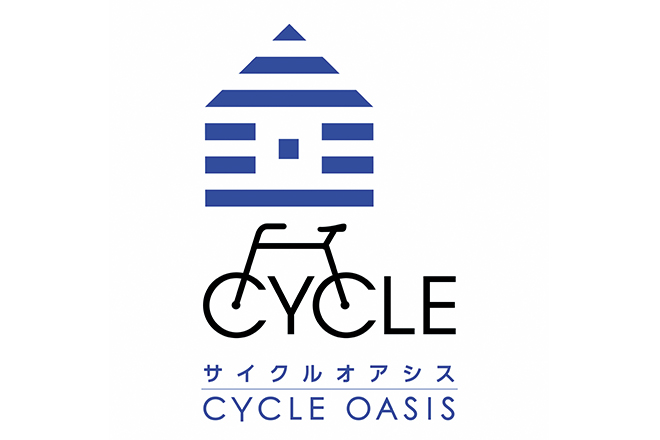 03
03Cycle Oasis are full featured rest areas especially for cyclists.
There are over 300 Cycle Oasis rest areas for cyclists in Ehime Prefecture. Cycle Oasis feature essential facilities for your cycling, including free air for your tires, water (drinking water including tap water), bathrooms, rest facilities, and useful information on cycling. Look for this mark. -
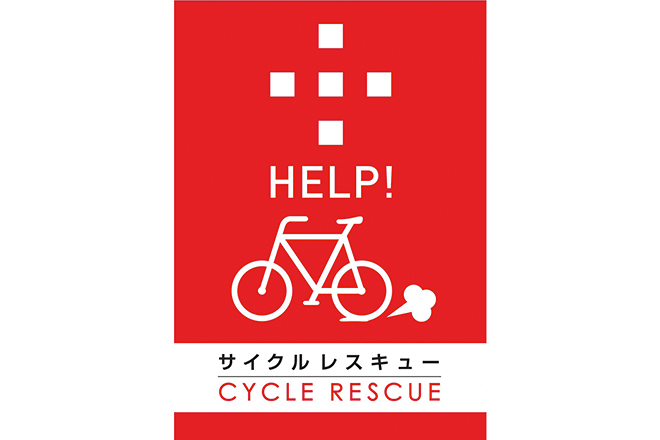 04
04Visit Cycle Rescue when you have trouble on your trip
Look for the Cycle Rescue logo when you have trouble on your trip.
There are also businesses that will give you transportation to and from bicycle shops and handle simple repairs such as flat tires. -
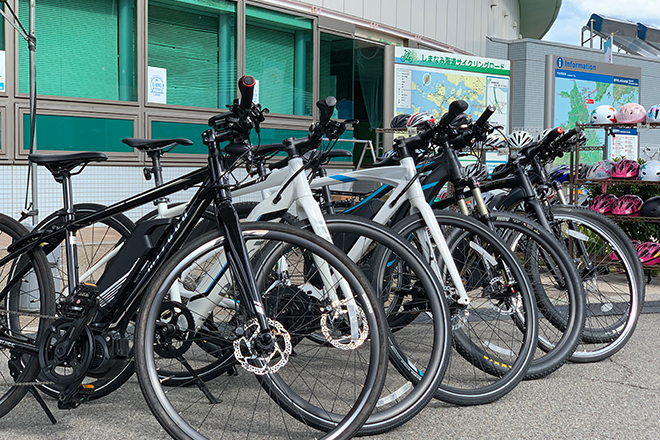 05
05E-Bikes are an easy way for beginners to enjoy cycling.
E-bikes are sports models of electric assist bicycles that help you enjoy long distances and hills more comfortably. We recommend them for those who want to try the challenge of cycling on the Shimanami Kaido but are not sure if they have the strength and endurance. They can be ridden by cyclists of all ages.
Travel to EHIME
There are numerous ways to get to Ehime, including by air, train, highway bus, and ferry. There are plenty of services helpful for cyclists as well, so you are sure to be able to experience the cycling tour just right for you.
-
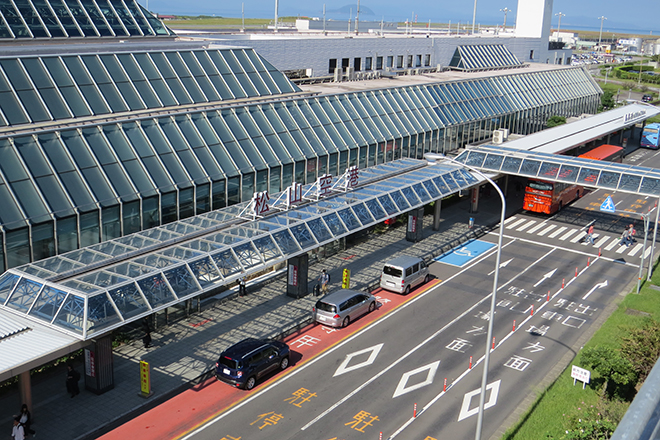
By Plane (Domestic flights)
Domestic flights in and out of Matsuyama Airport connect with nine destinations including Sapporo, Haneda, Narita, Itami, Kansai, Chubu, Fukuoka, Kagoshima, and Okinawa. See the link below for details.
Matsuyama Airport includes a Cycle Station and changing rooms. There is also a service to temporarily store the shipping box you carried your bicycle in, allowing you to start enjoying cycling as soon as you arrive at the airport. -
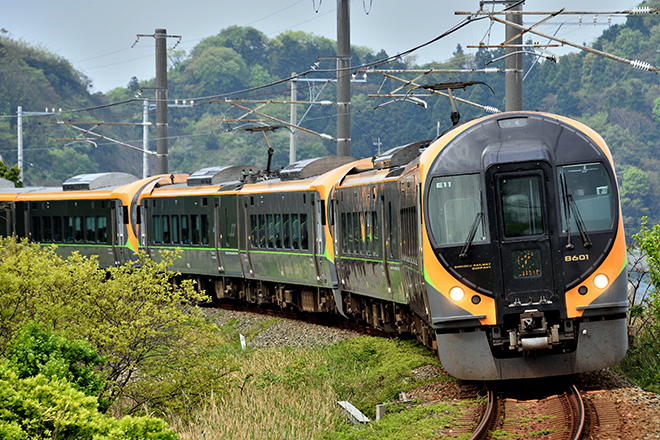
By Train
Ehime can be accessed conveniently by rail, including the JR-West bullet trains and JR Shikoku express trains, from neighboring cities and prefectures including Hiroshima, Okayama on the mainland and Takamatsu, Tokushima, and Kochi in Shikoku.
Passengers on JR Shikoku are allowed to load up their bicycles folded into bicycle bags free of charge. There are even “cycle trains” on sections of the Iyotetsu line of JR Shikoku where passengers can carry their bicycles onboard as is. See the link below for details. -
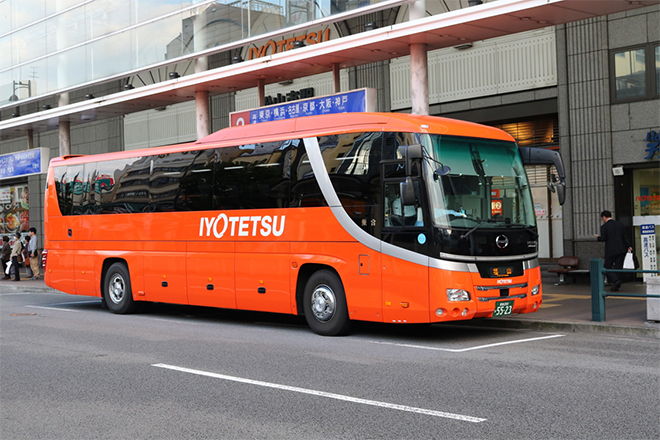
By Express Bus
Highway buses to Ehime depart from such cities as Tokyo, Osaka, Nagoya, Kyoto, Fukuoka, Hiroshima, Fukuyama, Okayama, Takamatsu, Kochi, and Tokushima. See the link below for details.
-
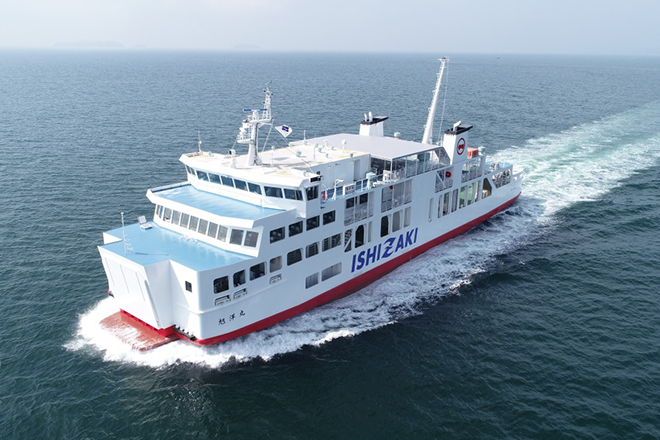
By ferry (including high-speed ferry)
Ferry, including high-speed ferry, is a convenient option for travelers from Hiroshima (Hiroshima, Kure), Fukuoka (Kokura), and Oita (Beppu, Usuki, Saganoseki). Ferries from Hiroshima and Fukuoka connect with the Matsuyama Tourist Port, while those from Oita provide access to Yawatahama Port and Misaki Port. Those planning to bring their bikes should take the ferry.
We use cookies on this site to enhance your user experience. If you continue to browse, you accept the use of cookies on our site. See our cookies policy for more information.





